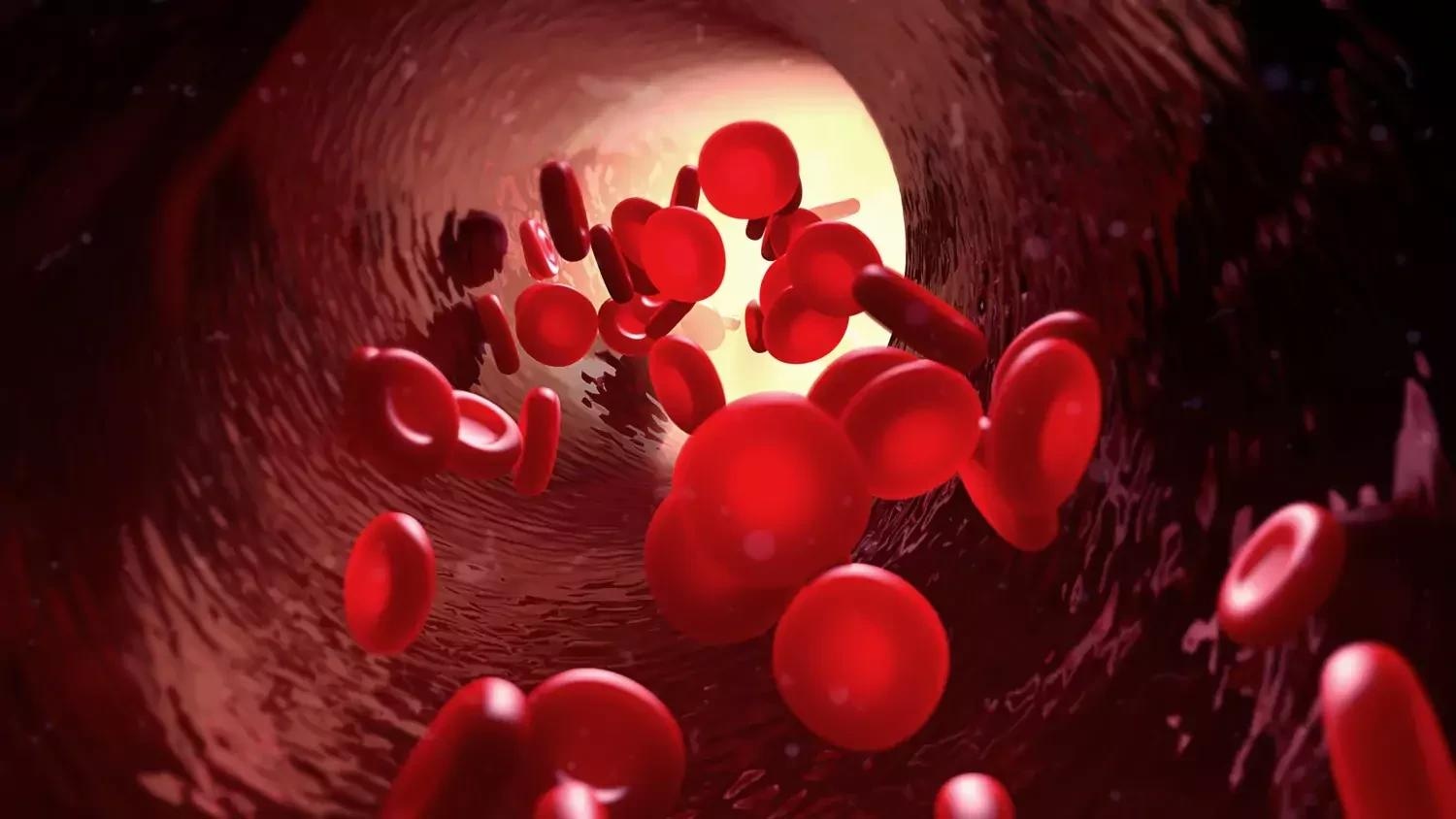An innovative KI study published in the Journal of Clinical Investigations found that red blood cells exposed to oxygen deficiency safeguard against myocardial infarction. The research also showed that a nitrate-rich vegetable diet boosts the protective effect.
 Red blood cells transport oxygen from the lungs to all the body's cells. Image Credit: Getty Images
Red blood cells transport oxygen from the lungs to all the body's cells. Image Credit: Getty Images
Red blood cells transport oxygen from the lungs to all cells in the body and carbon dioxide back to the lungs. A recent study conducted at Karolinska Institutet in partnership with Karolinska University Hospital demonstrates that red blood cells have an intrinsic role in safeguarding the heart against myocardial infarction-induced heart injury.
A diet rich in nitrate-rich vegetables, like arugula and other green leafy vegetables, enhances the effect.
This effect was also shown in a clinical study in patients with high blood pressure who were randomly assigned to eat nitrate-rich vegetables or a diet low in nitrates.”
John Pernow, Professor, Cardiology, Department of Medicine, Solna, Karolinska Institutet
John Pernow is also a Senior Physician at Karolinska University Hospital and the study’s Corresponding Author, together with Jon Lundberg, Professor at the Department of Physiology and Pharmacology, Karolinska Institutet.
Investigations with mouse red blood cells that were added to a myocardial infarction model with mouse hearts were part of the study. The red blood cells were exposed to low oxygen pressure prior to the experiment, and nitrate was added to the drinking water.
One Group Had a Nitrate-Rich Diet
Red blood cells from patients with high blood pressure who were randomized to a diet high in nitrate-rich green leafy vegetables or a diet low in nitrate-rich vegetables were obtained as part of a clinical study. These red blood cells were administered to the corresponding rat heart myocardial infarction model.
The results show both that the red blood cells convey protection against injury in the heart in the event of low oxygen levels, and how that protection can be enhanced through simple dietary advice. This may be of great importance for patients at risk of myocardial infarction.”
Jiangning Yang, Study First Author and Researcher, Department of Medicine, Karolinska Institutet
The next process in the study is to develop additional drugs that can stimulate the protective signaling mechanism in red blood cells to safeguard the body’s tissues and cells in the event of an oxygen deficiency.
In addition, we need to map how the blood cells transmit their protective signal to the heart muscle cells.”
John Pernow, Professor, Cardiology, Department of Medicine, Solna, Karolinska Institutet
Source:
Journal reference:
Yang, J., et al. (2023). Hypoxic erythrocytes mediate cardioprotection through activation of soluble guanylate cyclase and release of cyclic GMP. The Journal of Clinical Investigation. doi.org/10.1172/JCI167693.